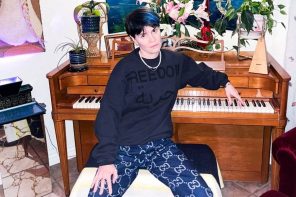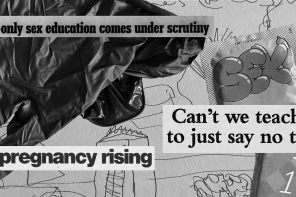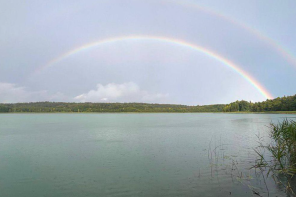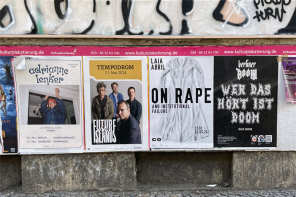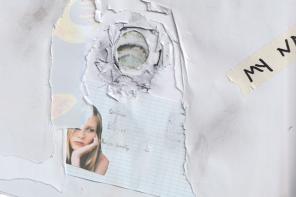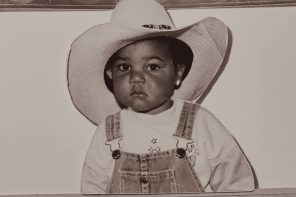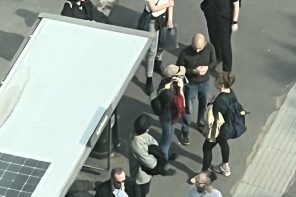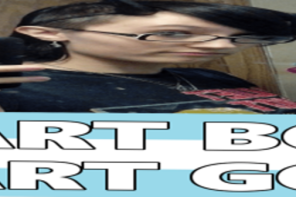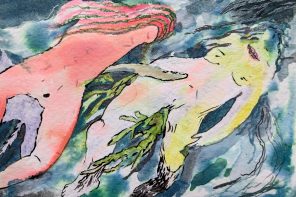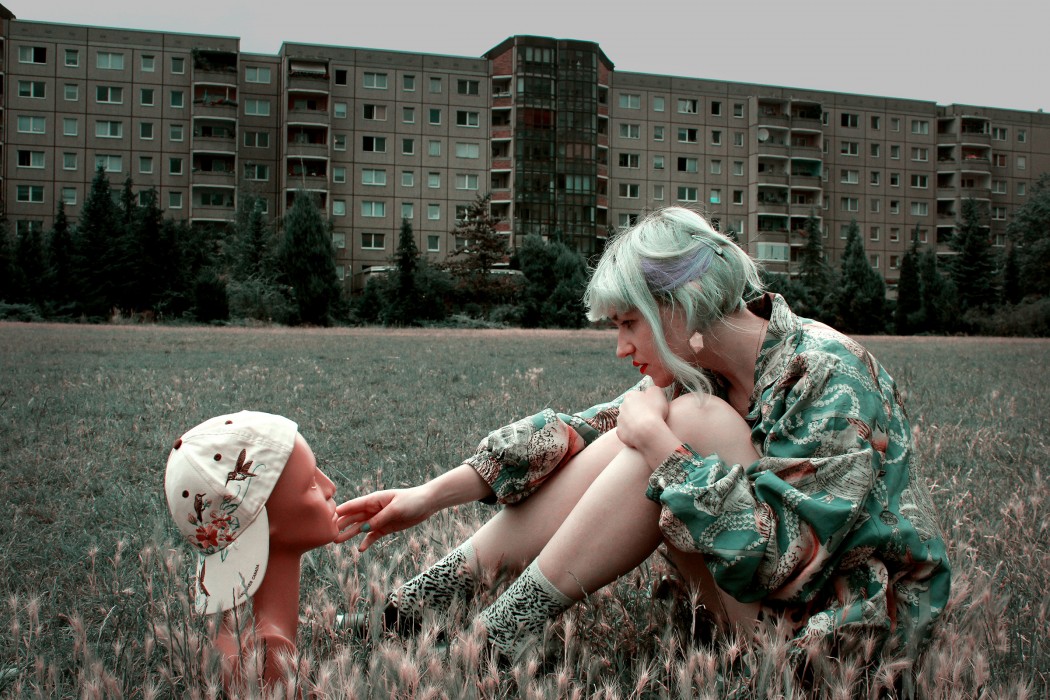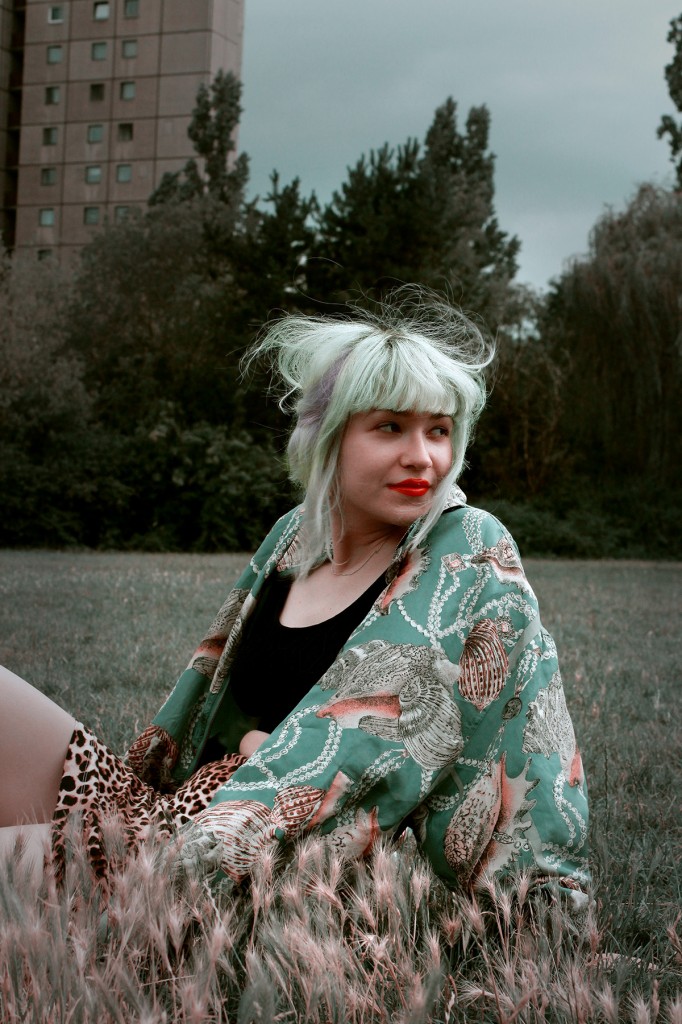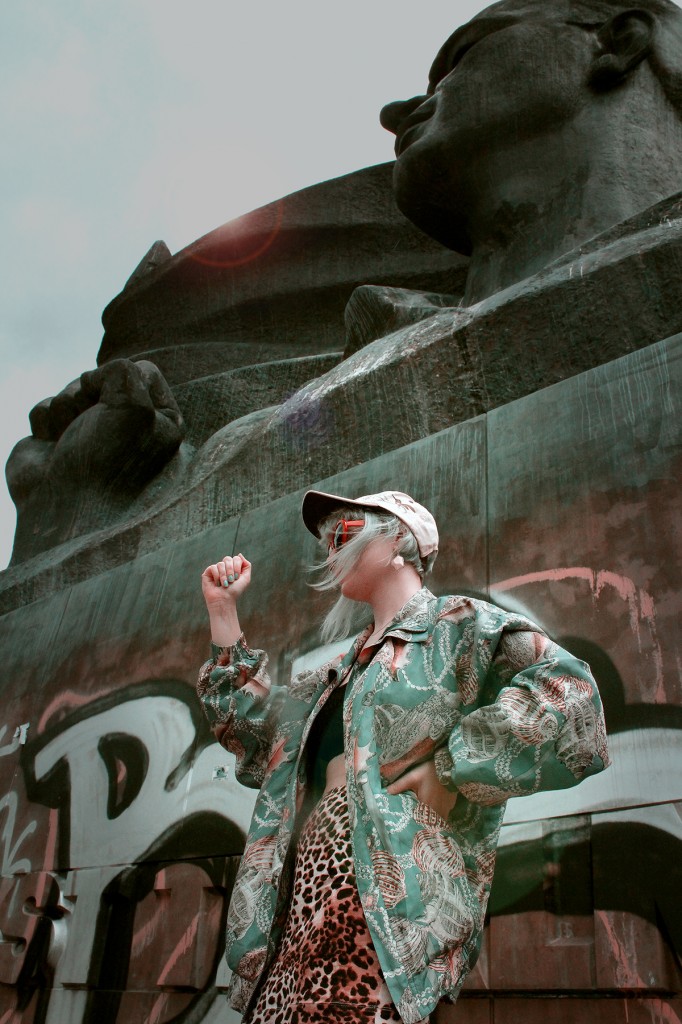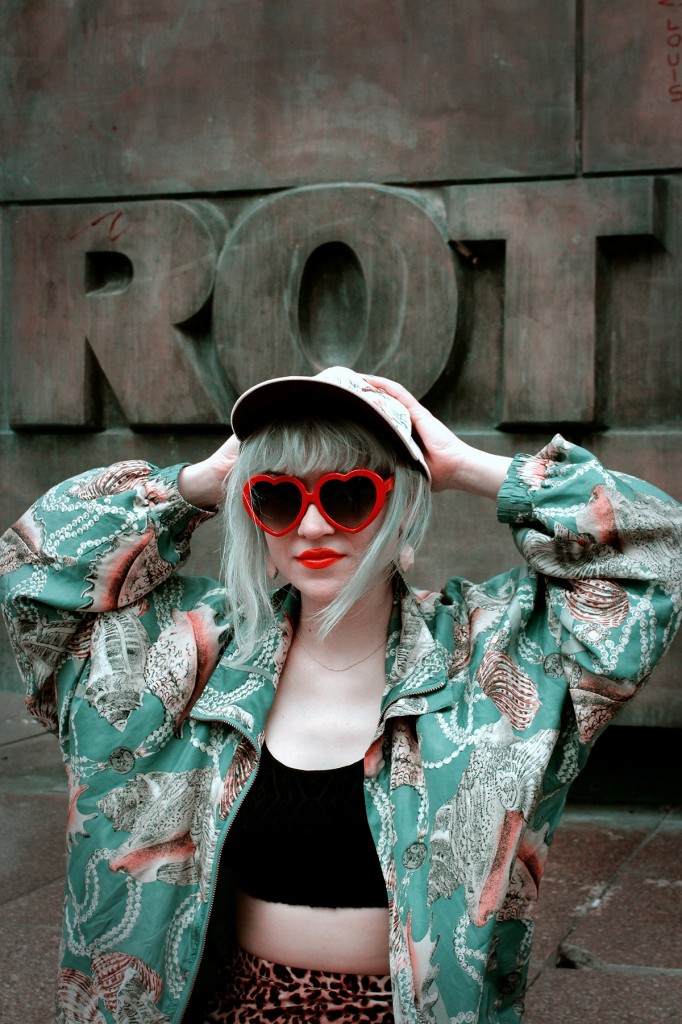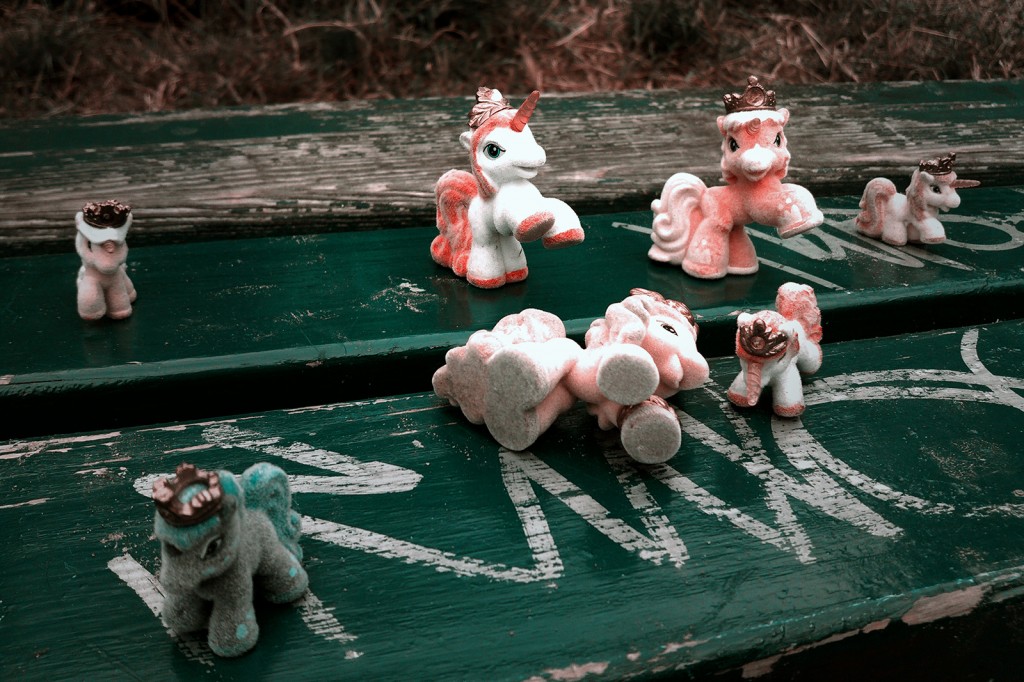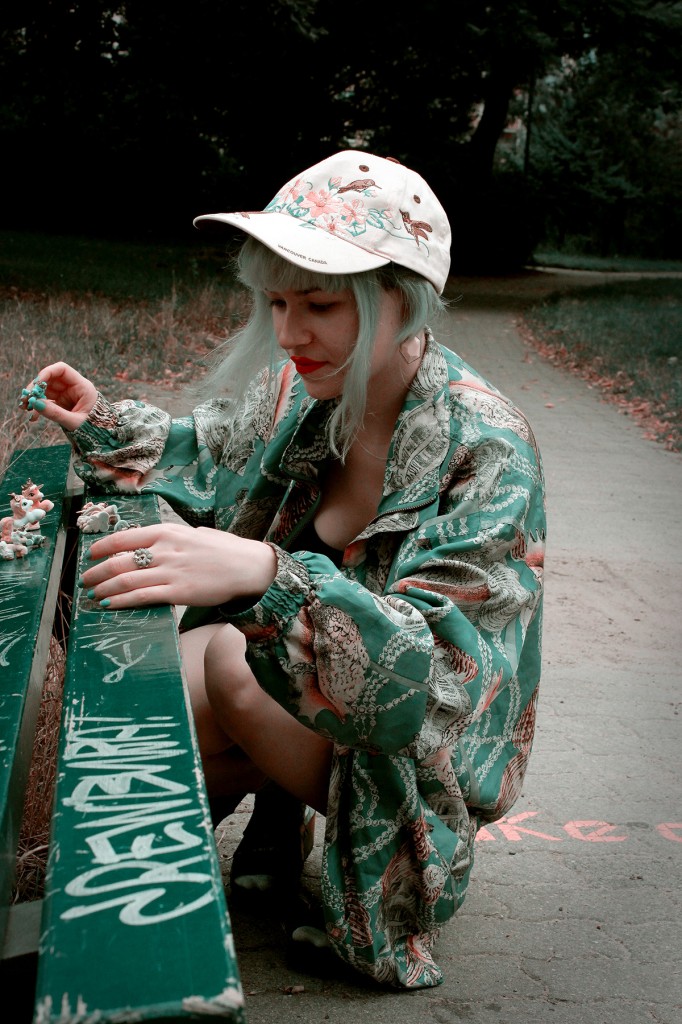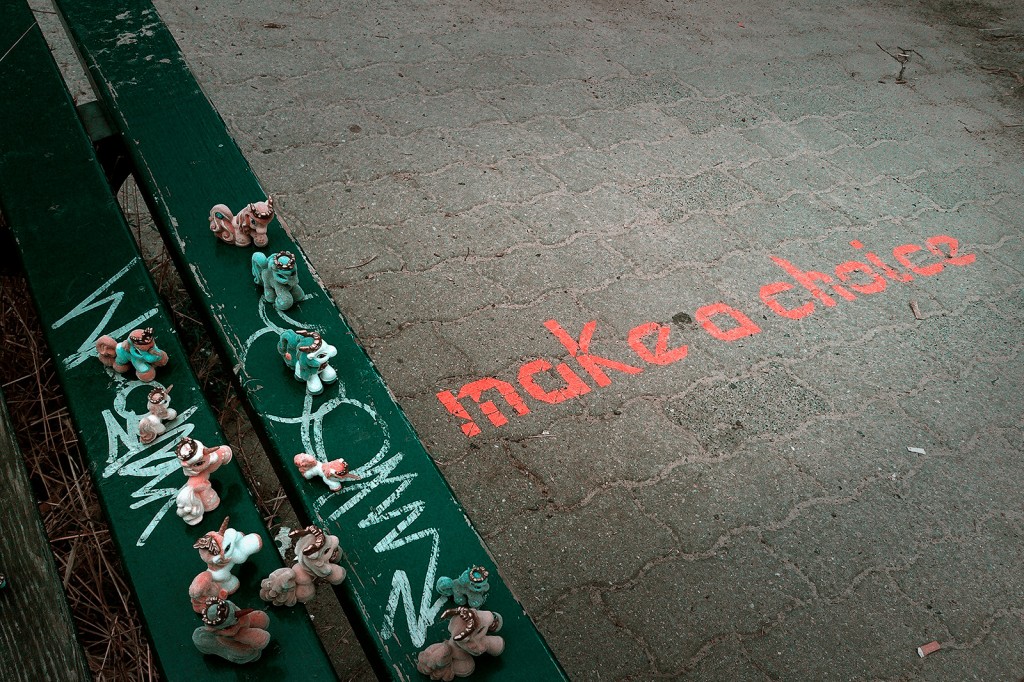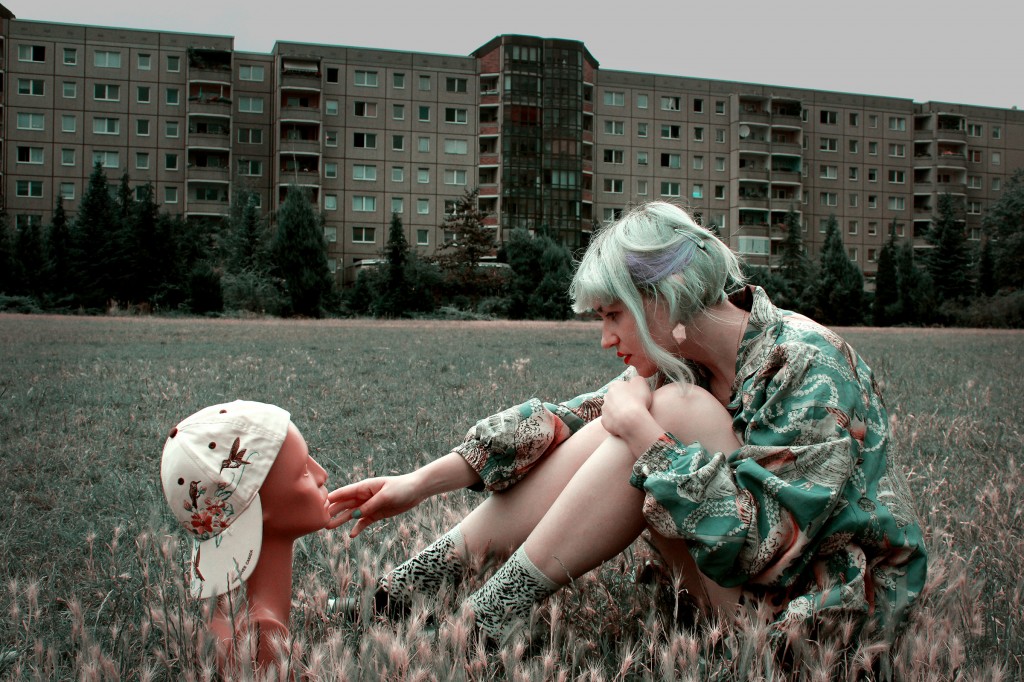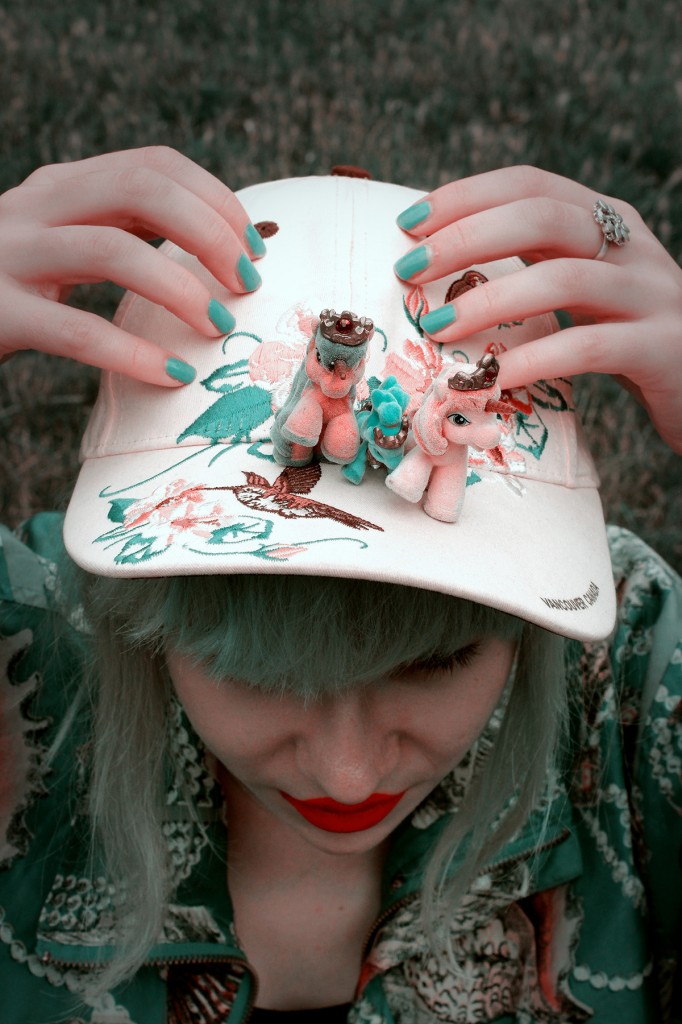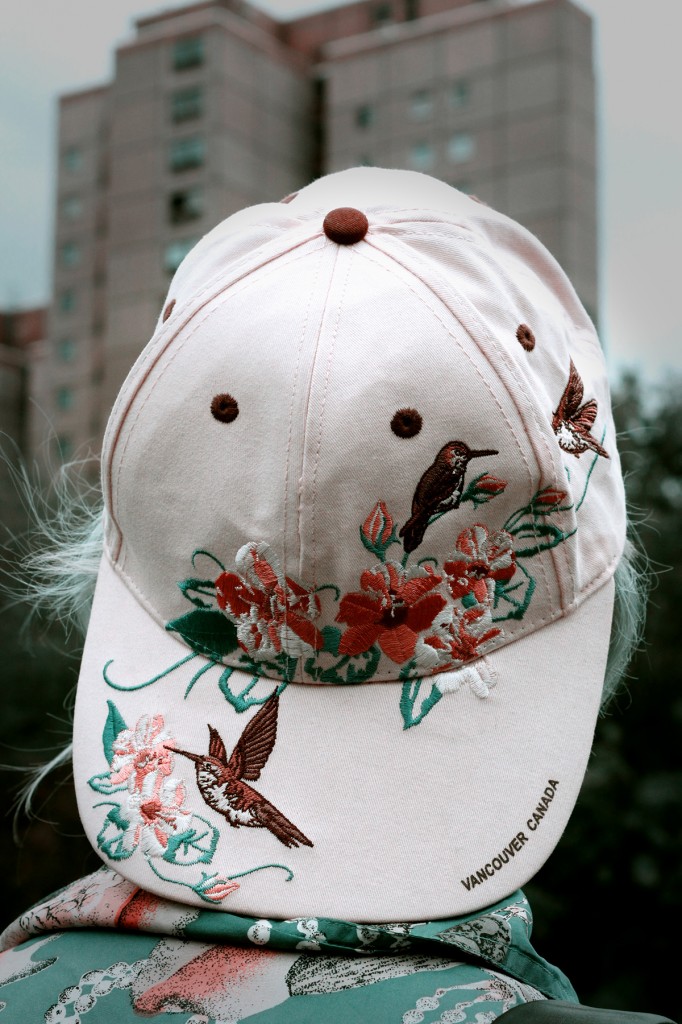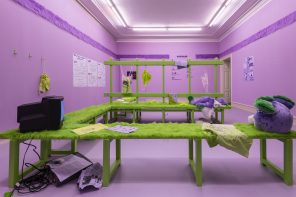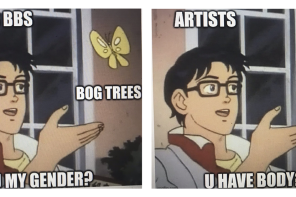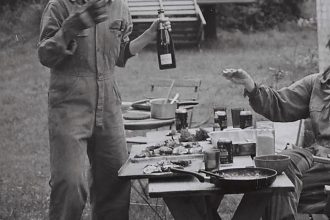I met Stefana on a sticky summer day at the Berliner Ernst Thälmann Park, named after a former Communist Party leader. With grey Soviet plattenbau buildings in the background, I asked this Romanian-born, Vancouver-based producer and artist about her inspirations and experiences with sexism in the music industry. But a storm was building up and our conversation ended a bit abruptly with the downpour, so I missed the chance to tell her in person how impressed I was by her determination and knowledge.
So, this is my first interview. How many interviews have you given?
I’m not sure. Not a huge amount, not like a hundred or anything (laughs).
But you’ve played music for a long time, right?
I’ve definitely played more shows than given interviews. I know I’ve played over a hundred shows.
When did you start playing music?
I started performing when I was 16 and I am now 22. I’ve performed all around Europe and Canada, booking my own tours. The music and I have changed over time but the project’s name has remained the same, even as it’s transitioned genres.
So you are your own PR agent?
Yes. Sometimes I even pretend to be someone else writing the PR e-mails. I have different accounts and identities on the Internet. I guess I feel more in control of my real identity this way. The way the Internet it is formatted to collect our private information seems absurd to me so I feel obligated to respond in an absurd manner. I’m kind of obsessed with surveillance and virtual vs. non-virtual interactions.
Would you ever have a manager?
The idea of having a manager is very unappealing to me. It just wouldn’t match my politics. Many artists I am inspired by manage themselves, like Erykah Badu. I also don’t feel like I need someone to decide whether or not I have time to do something. There’s always time, it just means less hours of sleep.
What kind of circles do you move in? Do you have contact with feminist and queer communities in Vancouver?
Definitely. My friends fit all kinds of descriptions – they might identify as feminist, queer, person of colour, indigenous, settler, activist, academic, artist, etc. I am constantly trying to draw connections between the social circles of academia, activism, and art. Generally speaking, almost everyone I am friends with has read feminist theory at some point and understands what feminism means and how it is inclusive to all genders. In the past few years I have noticed a growing interest in queer theory and decolonization within our community. It’s not just about feminism anymore. People tend to open up to other understandings of sexuality once they’ve read Judith Butler, just as they do about race after reading bell hooks, or settler-colonial violence after reading Leanne Simpson. I think these realizations happen very naturally once we engage with the ideas.
What are you afraid of? What are your insecurities?
Ultimately what I am afraid of inspires me to produce music. For example, a recurring insecurity might be that I am becoming too desensitized to violence. In my field of political science (transitional justice) we are always having to confront very dark realities, but often from a distance, from the academic ivory tower. I am afraid about the moments in which I am disconnected from those who I am trying to privilege. I think that it is in these desensitized states that we forget our own privileges and when we do horrible things to one another. It’s when we don’t empathize, when we don’t let ourselves be vulnerable. So, in response to this experience, I write music within what feels closer to reality, away from that tower.
Do you feel privileged?
Absolutely, this is a huge part of my insecurities and fears. How do I let go of my privileges? Or can I let go of some but not others? For example, I travel in circles of anxiety over my existence as a settler on indigenous land. What do I do about all the violence I am already implicated in just by my very being? I’m trying to unpack this and enact meaningful cultural change, so that is where my music kind of picks up.
Tell me about sexism in the music industry.
Well, it’s dominated by white males with a middle-to-upper class background, even in Vancouver. That’s always the kind of space you have to move within. The music industry’s standards make their way into Vancouver too. I do feel like I constantly have to reckon with being reduced to a ‘small, cute, pretty’ girl. I try to consider where the double standards are. On the one hand, that is what interests people in you and coming to see you perform. On the other hand I want people to appreciate the music I make, instead of caring about how I look.
So you think a lot about these things?
Yes and this is something my straight, male counterparts do not really run into. For instance, they don’t think about what they are wearing on stage and what it might imply, like “should I wear heels or is that not feminist? Should I cover my body or deal with being slut-shamed?” Sometimes people will respect you and sometimes they won’t and I think the only thing I can do is be confident in myself and my reasons for doing what I feel like doing. I don’t want my gender to take away from the creative process, though I do let it shape and amplify the experience. Essentially, I hate the music industry and I am hyperaware of gendered space. I’m very sensitive and I think a lot of women in the music industry might not even notice the sexism that is going on, or how they might be proponents of it, but for me it feels very personal and it always has – like if I have a sound guy who is an asshole, I just immediately tell him I prefer to do my own sound.
So you get a lot of patronizing – men telling you where to put your cables.
Definitely. This tour has been quite good because I’ve got a gear set-up where I am in control of my levels. I did this to bypass dealing with any alpha/macho attitude towards my sound. Of course, I still witness people (women too, of course) get like that about sound and sound gear. It drives me crazy because the relationship between the artist and the booker, promoter, sound person, and community should be very positive and safe but it tends to feel very unsafe. Even the way venues are set up, how the sound system is rarely even near the artist, is very power-bound because the artist is the one that knows their sound best. I’d even rather stand next to the sound person on stage and communicate with them live but that’s not how it works – you have to be isolated, centre-stage and the (likely) white male sound-person is forced to weirdly peer at you from a distance. All those dynamics are hierarchical and linked to prevailing systems of patriarchy, I think. Then again, if you’re not looking closely enough, you might not notice them.
Can you give us an example of an “unwanted comment“, something somebody said to you without you asking.
Most unwanted comments have to do with how I look or how I use my gear. A couple years ago, a man asked if I was ” trying “ to go for “the innocent angel-witch vibe” because I had performed most of the show sitting on my knees. I remember saying, “what are you talking about?” and he was embarrassed and totally refused to own up to his comment. I guess he realized he had been projecting his own fantasy unto me.
Right! Thank you very much for your sincere answers. Do you have any questions for us?
I am so fascinated with Berlin because they are so many memorials and spaces of remembering here which I think is very beautiful and empowering. I was wondering if you, in your everyday life, get to think about what happened in Berlin over the last two centuries? Or if you think that history is remembered here better than, for example, in Spain?
Spain is horrible at remembering. There is a shameful number of unearthed mass graves from the civil war, for example. So I think here it is a bit better, but I also feel that the new generations don’t pay a lot of attention to them. They think that it doesn’t have anything to do with them anymore and they react in boredom. It’s something they learn about at school, but they don’t really identify with that. Since I’ve lived here, I started looking at Berlin in another way, but whenever I have people visiting me, I see the city through their eyes and I realize how much history it has and it haunts me all over again.
Follow Stefana Fratila on Soundcloud, tumblr and Facebook!
Interview by Lo Pecado
Photos by Judy Mièl
Special thanks to Hui for the pony photos
